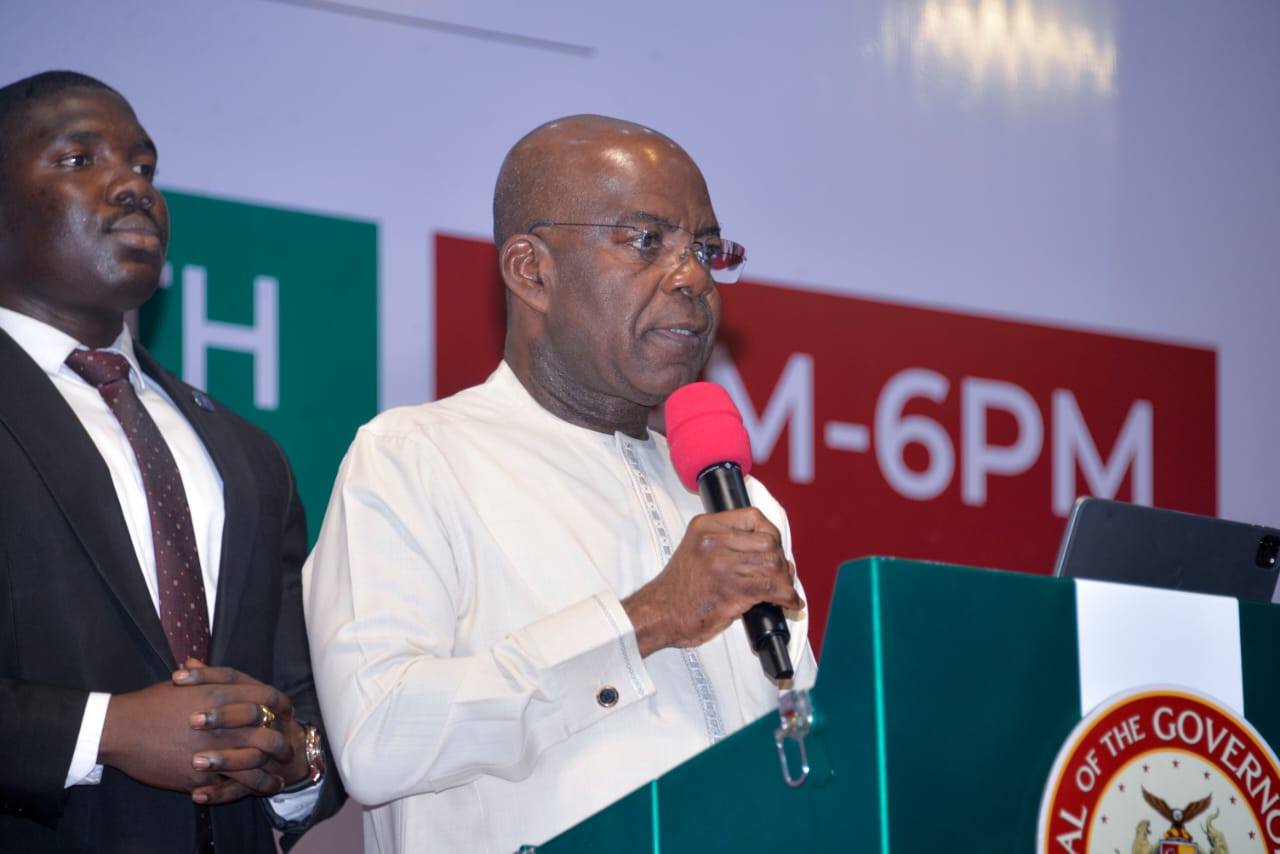
* Red Chamber dissolves Committees on National Security & Intelligence, Air force
* Orders other security related committees to submit reports in one-week
…Lawmakers hail Tinubu, ask President to further rejig security architecture, rebuild key highways
Sunday Aborisade in Abuja
The Senate on Wednesday took some of its strongest security decisions in recent years, declaring kidnapping a form of terrorism and recommending the death penalty for offenders without the option of fine or judicial discretion to reduce the punishment.
The move followed hours of tense deliberations over escalating insecurity in Kwara, Kebbi, Niger and neighbouring states, triggered by the November 18 attack on Christ Apostolic Church (CAC), Eruku, in Ekiti Local Government Area of Kwara State, where two worshippers were killed and 38 abducted.
Although all the abducted victims were later rescued through coordinated operations involving the Nigerian Army, Police, DSS and vigilante groups, lawmakers said the attack confirmed the southward spread of insurgent activities and the deepening collapse of rural security.
The Senate resolutions followed a robust debate on a motion titled ‘Urgent Need to Address Escalating Insecurity in Kwara, Kebbi, and Niger States and Strengthen National Security Frameworks,’ moved by Senator Oyelola Ashiru, representing Kwara South Senatorial District.
Senators warned that schools, worship centres, roads, and entire communities had become targets in a widening pattern of attacks.
The Senate noted that the wave of school abductions had forced the shutdown of learning activities in all local governments of Kebbi and Niger States, five LGAs in Kwara, and all 47 Federal Unity Colleges across the country.
The chamber expressed alarm over reports that troops were withdrawn from a school in Kebbi State a few minutes before the bandits struck, and ordered an immediate investigation into the incident, as well as the killing of Brigadier-General Uba, who was ambushed after his security warnings were allegedly leaked.
The senators also identified internal collaborators, compromised intelligence channels, and the takeover of forest corridors, such as the Kwara–Kogi axis, Kebbi–Zamfara route, and Shiroro–Rafi–Munya triangle, as enabling factors behind the surge in coordinated attacks.
Senator Issa Jibrin (Kogi East) lamented Nigeria’s severe security manpower deficit, noting that the nation’s military, police and paramilitary personnel combined do not total one million, while Egypt, with a similar population, maintains over 1.5 million security personnel.
He called for urgent modernisation of equipment, improved intelligence coordination, and activation of a military reserve force to support overstretched troops.
Other senators warned that bandit activities were now creeping towards Osun State through Ekiti-linked communities around Eruku–Isapa–Koro, where a retired Army General and traditional ruler were recently killed.
On infrastructure, the lawmakers blamed deteriorated highways, especially the Idofian–Omu-Aran–Eruku–Egbe–Kabba road, for enabling bandits’ swift escape after attacks.
The Federal Ministry of Works was directed to immediately commence reconstruction of the corridor.
Concerned by rising brutality and ransom-driven criminal networks, senators agreed that kidnapping had evolved into a form of terrorism and must be confronted with the harshest punishment under the law.
“Capital punishment must apply,” several senators argued, insisting that no judge should have the power to reduce the sentence for convicted kidnappers.
The Senate called on President Bola Tinubu to “further rejig the nation’s security architecture”.
Although Senator Ali Ndume cautioned that such statements could be misinterpreted in light of the recent confirmation of service chiefs.
The chamber clarified that its demand was aimed at strengthening coordination, technology, intelligence, and rapid deployment capabilities.
In one of the most dramatic decisions of the session, the Senate dissolved its Committee on National Security & Intelligence and the Committee on Air Force with immediate effect.
All other security-related committees were directed to submit written reports of their oversight activities and brief the Senate in a closed session within one week.
The Senate also resolved to strengthen registered vigilante groups through federal support; review Nigeria’s firearms law to permit controlled arming of responsible citizens.
It also resolved to ask the relevant government authorities to establish a Joint Task Force (JTF) along the Kwara–Kogi corridor with operating bases in Eruku, Babanla, Oke-Ero and Isanlu; and expand aerial surveillance, forest combing and inter-state security operations.
Additionally, the lawmakers mandated the Ministry of Humanitarian Affairs and NEMA to provide relief materials to affected families, especially in communities where schools remain closed.
The chamber also approved diplomatic engagements with the United States, United Kingdom, France, Canada, and other allied nations for intelligence sharing, counter-terrorism training, drone technology, and acquisition of advanced surveillance systems.
While commending President Tinubu for cancelling foreign trips and personally coordinating rescue operations that led to the release of 51 abducted Niger State students and all 38 Kwara abductees, the Senate urged him to sustain the momentum until all victims across the country are freed.
The Senate lamented ransom payment and demanded the exposure of those behind the negotiation with a view to arresting issues of terrorism and banditry from the source.
A one-minute silence was observed in honour of all victims of recent attacks.
The Senate noted with grave concern that Nigeria’s internal security environment is deteriorating at a dangerous pace.
It warned that failure to act decisively could trigger mass displacement, collapse of rural economies, further school shutdowns, and severe psychological trauma for millions.
It reaffirmed its commitment to monitor compliance with all resolutions, insisting that insecurity now poses the greatest threat to Nigeria’s unity, stability and future.


